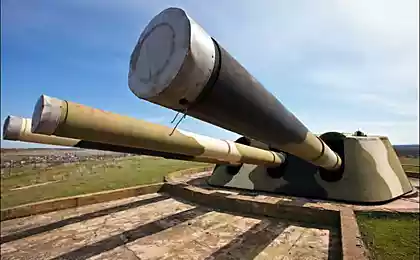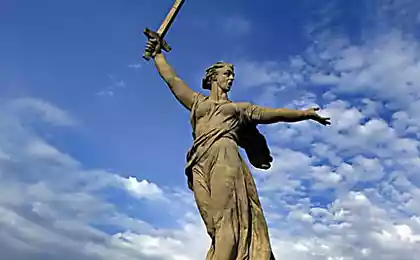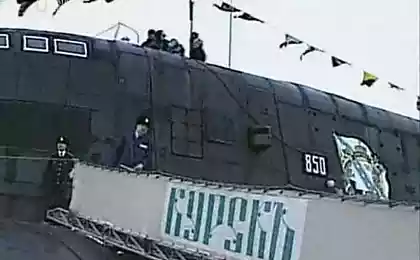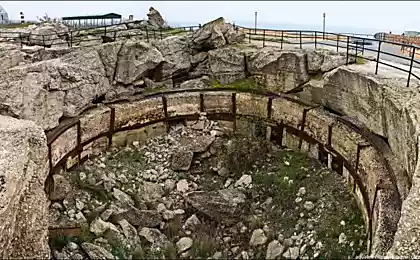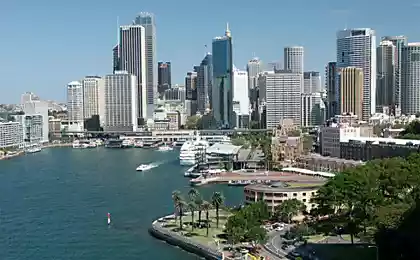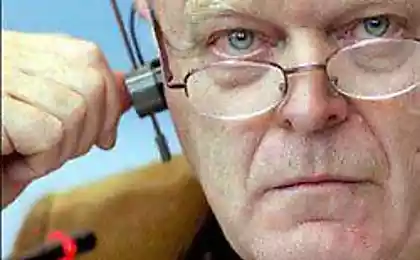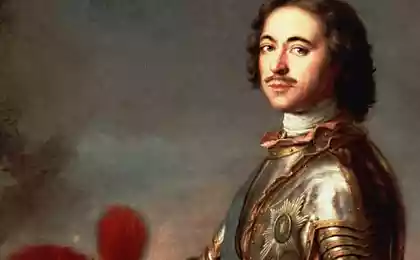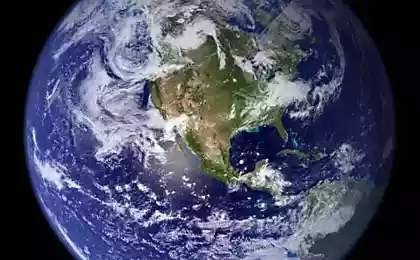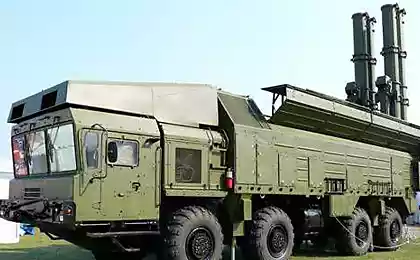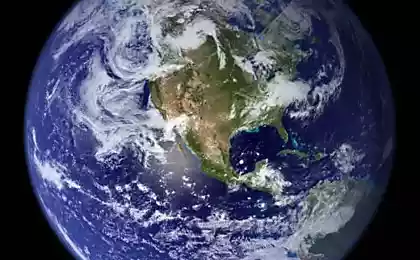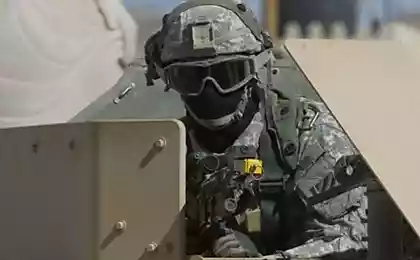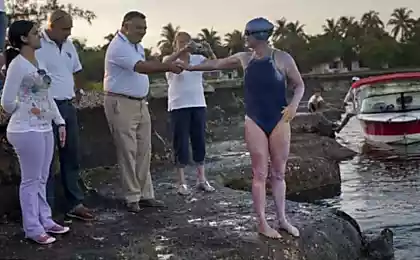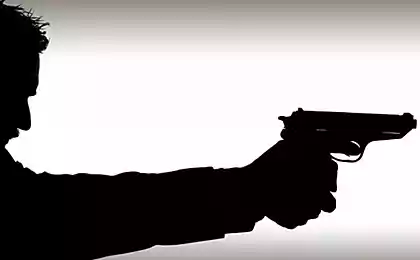1006
Australian service. Coastwatchers
August 7, 1942, US Marines landed on Guadalcanal and fought seized the airfield, which is hastily built by the Japanese. A week later to him lean down from the mountains, overgrown and barefoot man dressed in rags - a resident of the Australian intelligence agencies. In 1938, Martin Clemens was appointed to the Solomon Islands official representative of the Ministry for the colonies of Britain. Since the beginning of the war, Martin wanted to join the ranks of the armed forces, but he was denied this. Instead, Clemens took up the deployment of the service "Shore observers" - it was a network of agents created by the Australian Navy in 1919.
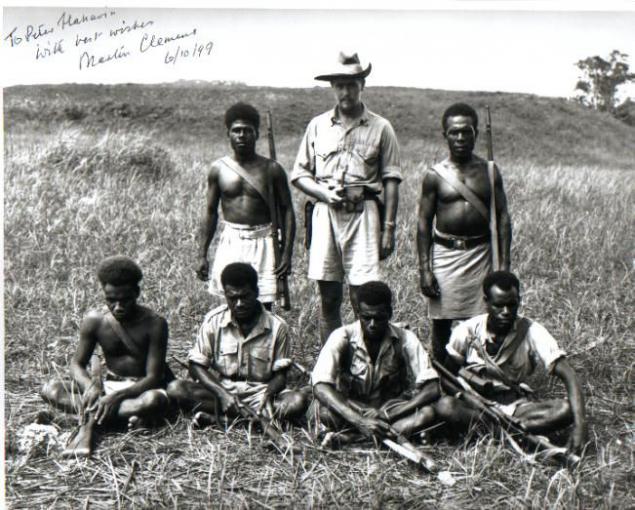
In secret unit were plantation owners, officials, merchants, retired officers - everyone who was on the occupied territories and wanted to be helpful. Armed bulky radio, "coastal observers" to track the movement of Japanese troops and transmit timely information to Townsville, where the headquarters of the secret service. "Coastwatchers" launched almost unbroken chain of agents to the border to New Guinea New Hebrides. That Clemens said at the center of the building by the Japanese airfield on Guadalcanal. If the enemy managed to post the Air Force on the island, the entire region of the Solomon Islands would have been under the control of the Japanese aviation supply routes between the US and Australia would be under direct threat. During the battle for the Solomon Islands "observers" provided invaluable assistance allied troops, they're well camouflaged Japanese gun positions - carpet-bombing aircraft were virtually useless in the jungle, the same point on the other hand strikes gave excellent results, according to the chief of the Coast observers Captain 2nd Rank Australian Fleet Eric Feldt.
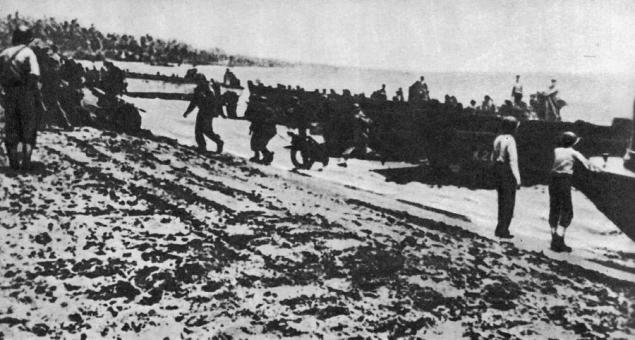
According to various sources in the organization participated from 50 to 400 people. The Japanese managed to track down the 36 agents. Volunteer "coastal observers" Reginald Evans on the coast of New Georgia saved the lives of the crew of torpedo boat PT-109, its commander was First Lieutenant John F. Kennedy - the future president of the United States. Total 75 prisoners were rescued, 321 downed Allied airmen, sailors, 280, 190 missionaries and civilians, as well as representatives of indigenous peoples and others who risked their lives for the Allies.
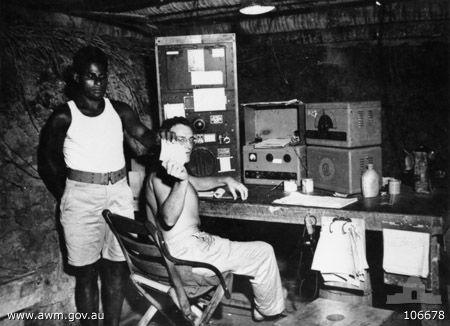
In addition, according to rumors, "observers" were involved in a secret operation to destroy Isoroku Yamamoto. Soon after Allied troops reached for coverage of "observers", but taking into account the positive experience, were formed new riot, such as "Scouts of the Alamo," but let's talk about them another time. Admiral William Halsey noted that "coastal observers" saved Guadalcanal and Guadalcanal saved the entire southern part of the Pacific Ocean.
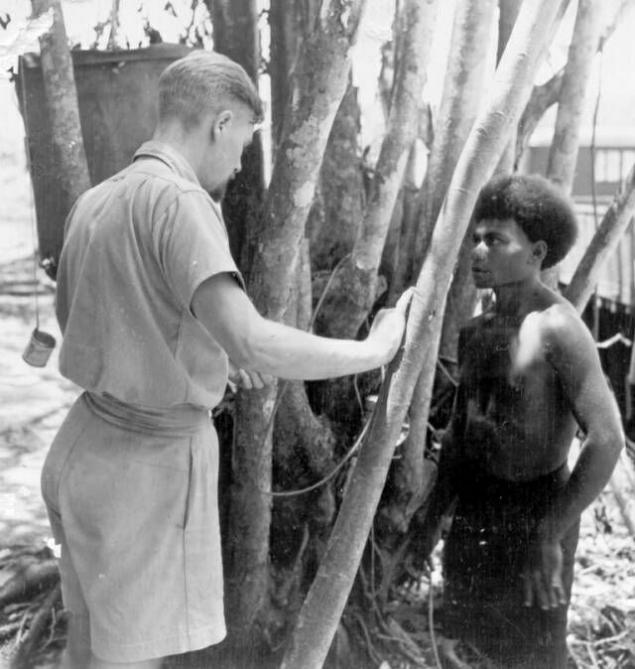
As for Martin Clemens, he was awarded the "Legion of Honor" (USA), "Military Cross" (UK), has continued to serve his country, first in Palestine (1946-47), then in Cyprus (1948-49), and Clemens himself notes that the Cypriot mission was almost more dangerous Guadalcanal. In 1951, Martin returned to Cyprus in 1959-60gg served as defense minister of the island. Subsequently, the wife returned home to Australia, has received numerous awards and honors of chivalry. Died May 31, 2009. Over his body sang Onward Christian Soldiers, as well as he and his comrades over the bodies of 17 Marines on Guadalcanal.
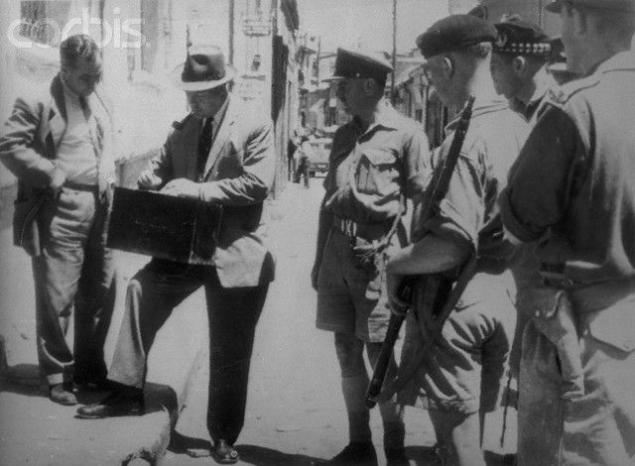

In secret unit were plantation owners, officials, merchants, retired officers - everyone who was on the occupied territories and wanted to be helpful. Armed bulky radio, "coastal observers" to track the movement of Japanese troops and transmit timely information to Townsville, where the headquarters of the secret service. "Coastwatchers" launched almost unbroken chain of agents to the border to New Guinea New Hebrides. That Clemens said at the center of the building by the Japanese airfield on Guadalcanal. If the enemy managed to post the Air Force on the island, the entire region of the Solomon Islands would have been under the control of the Japanese aviation supply routes between the US and Australia would be under direct threat. During the battle for the Solomon Islands "observers" provided invaluable assistance allied troops, they're well camouflaged Japanese gun positions - carpet-bombing aircraft were virtually useless in the jungle, the same point on the other hand strikes gave excellent results, according to the chief of the Coast observers Captain 2nd Rank Australian Fleet Eric Feldt.

According to various sources in the organization participated from 50 to 400 people. The Japanese managed to track down the 36 agents. Volunteer "coastal observers" Reginald Evans on the coast of New Georgia saved the lives of the crew of torpedo boat PT-109, its commander was First Lieutenant John F. Kennedy - the future president of the United States. Total 75 prisoners were rescued, 321 downed Allied airmen, sailors, 280, 190 missionaries and civilians, as well as representatives of indigenous peoples and others who risked their lives for the Allies.

In addition, according to rumors, "observers" were involved in a secret operation to destroy Isoroku Yamamoto. Soon after Allied troops reached for coverage of "observers", but taking into account the positive experience, were formed new riot, such as "Scouts of the Alamo," but let's talk about them another time. Admiral William Halsey noted that "coastal observers" saved Guadalcanal and Guadalcanal saved the entire southern part of the Pacific Ocean.

As for Martin Clemens, he was awarded the "Legion of Honor" (USA), "Military Cross" (UK), has continued to serve his country, first in Palestine (1946-47), then in Cyprus (1948-49), and Clemens himself notes that the Cypriot mission was almost more dangerous Guadalcanal. In 1951, Martin returned to Cyprus in 1959-60gg served as defense minister of the island. Subsequently, the wife returned home to Australia, has received numerous awards and honors of chivalry. Died May 31, 2009. Over his body sang Onward Christian Soldiers, as well as he and his comrades over the bodies of 17 Marines on Guadalcanal.


